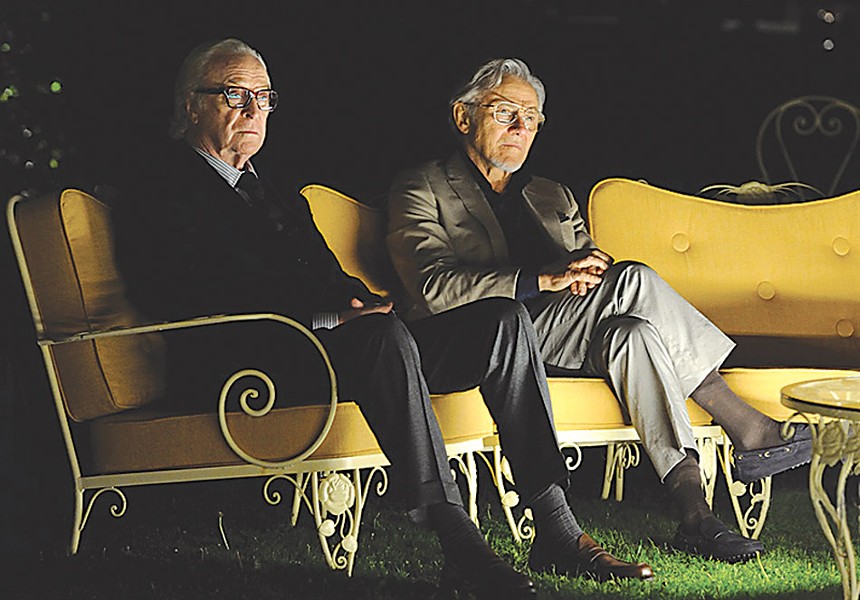Two affluent, aging, creative types contemplate love, life, and regrets in the melancholy dramatic-comedy "Youth" from Italian director Paolo Sorrentino ("The Great Beauty"). Michael Caine portrays a renowned composer, Fred Ballinger, now semi-retired and enjoying an extended stay at a luxurious spa in the Swiss Alps. In this secluded paradise the wealthy patrons can laze about, focusing their efforts on either maintaining or fruitlessly attempting to recapture their youthful appearances.
Fred is accompanied on his holiday by his best friend, film director Mick Boyle (Harvey Keitel, in an uncharacteristically gentle performance), and Ballinger's daughter, Lena (Rachel Weisz), who's also his assistant. Lena is married to Mick's son, but he abandons her mid-film in favor of a vacuous pop singer, leaving her to pick up the pieces. Other guests drift into view: a famous, rather pretentious movie star (Paul Dano, "Love & Mercy") preparing for his latest role while lamenting how much of his fame is owed to performing in a silly robot movie; and Miss Universe, a pageant queen with brains to match her looks. In their various ways, they're all feeling stuck, and after a time the spa's extravagant locale begins to feel like purgatory.
Ballinger is repeatedly paid a visit by the queen's emissary, who hopes to convince him to conduct a favorite composition in honor of Prince Philip's birthday. He firmly rejects the proposal, content to put his work behind him and live out the rest of his days in relative peace. Not ready to toss in the hat the way his friend has, Mick busies himself working with a team of young writers on his newest project. His last few films have been flops, but he's adamant that his latest is the masterpiece that will signify his comeback. Together, Fred and Mick wander the spa's lavish grounds, bantering and reflecting on lost loves and the exploits of their younger days, while ogling the bodies of the young (often naked) women around them.
Caine and Keitel make a great duo: the two men's friendship is believable and frequently quite touching. Weisz is equally good, getting a great scene in which she finally lets her father have it, though the plotline involving her tentative romance with a mountaineer is a bit of a dud. Jane Fonda appears in a late-movie cameo as an aging actress who roars into town to give Mick a frank (anti) pep talk. Fonda gives a fine, if broad performance, though she appears in an even briefer second scene that feels mean-spirited, and which the film could easily have done without.
The film is stunning to look at, and gorgeous images -- both of the artistic and more prurient variety -- abound. Sorrentino's frequent cinematographer, Luca Bigazzi, makes all the decadence extremely appealing. There's a certain aimlessness to the picture, a mish-mash of ideas and images that never quite come together the way it feels they should. For every scene of genuine poignancy, there's at least one that lands with a thud as it reaches for profundity but comes up short. The dialogue -- characters are constantly making grand pronouncements to one another -- can be painfully on the nose, though one wonders if that's simply a byproduct of "Youth" being only Sorrentino's second English-language film. Though Sorrentino pokes fun at the male ego, the film at times appears to prop up the retrograde idea that while men are artists and creators, and women are around mostly to inspire that art.
Fittingly for a film about a composer, music carries much of the film's emotional undercurrent. There's a lovely scene in which Fred sits outdoors and conducts the sounds of nature, and the musical sequence that concludes the film packs more feeling into its few brief minutes than most everything that came before.
